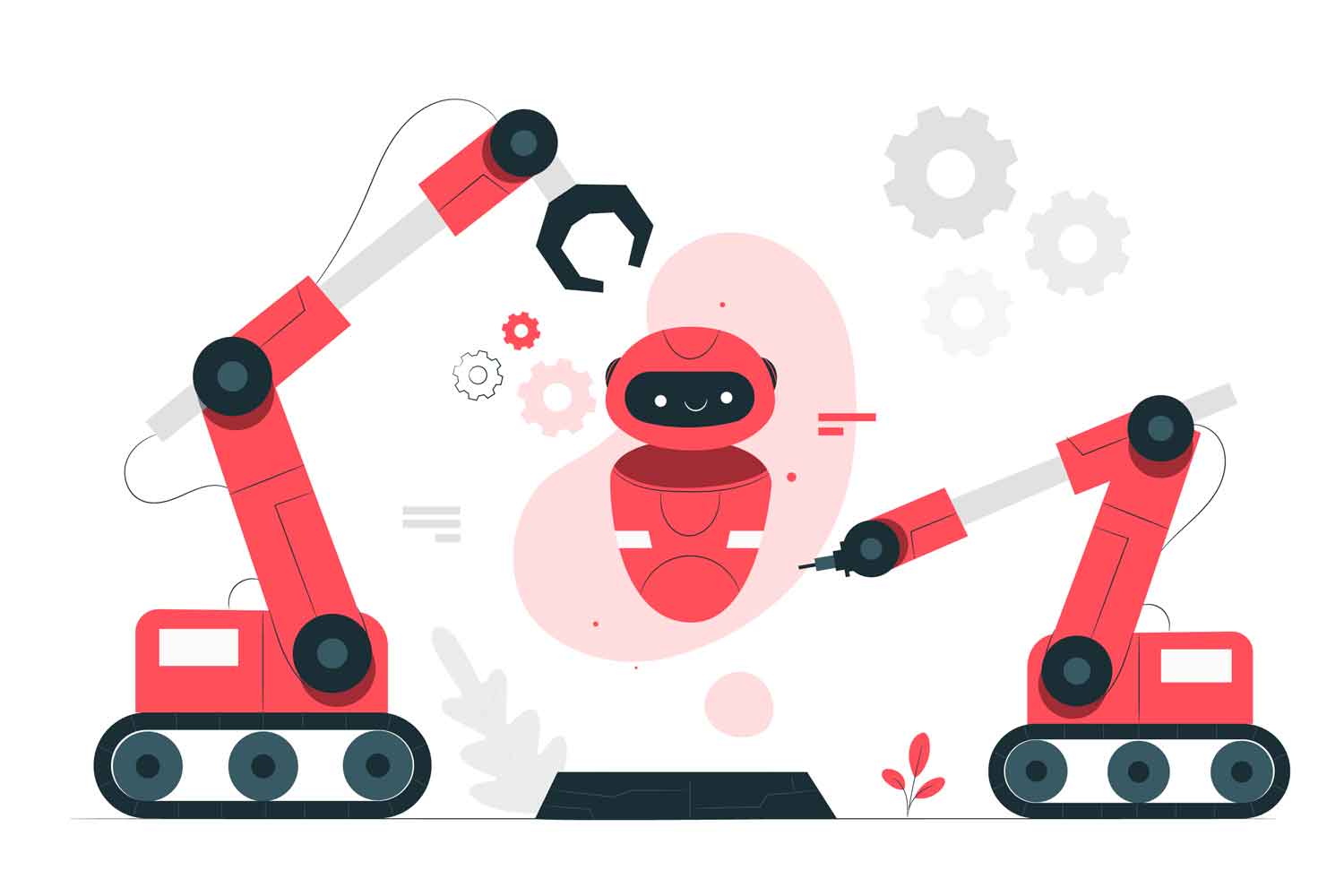An individual must know how to overcome Robotic Process Automation challenges. In this article, we also drafted solutions to read about obstacles and solutions simultaneously and place. Actual RPA implementation takes proper, timely planning. It has competitive benefits as well. For instance, when you give power to RPA, you do have an added advantage certainly. There is no requirement of taking a pushback or setting up a new process and infrastructure for revenue generation.
Robotic Process Automation:
The process of implementing technology that allows human beings to configure computer software or robots to analyze and read the current applications for performing multiple tasks like communicating with other digital devices, processing a transaction, manipulating data triggering responses, etc., is RPA. Every organization that uses labour on a large scale to perform various high-volume transactional process functionalities is known to boost their capabilities. Industrial robots reinvent the manufacturing industry by creating higher production rates with improved quality. The RPA robots also revolutionize the business process, workflow process, IT administration, remote administration, back-office works, etc. That’s pretty much everything companies need to know about how rpa works minus one – the varied roadblocks to implementing enterprise automation. Let’s elucidate –
Challenges enterprises face when operationalizing Robotic Process Automation:
- Siloed implementation.
- Unclear expectations
- Inconsistent outcomes.
- Disconnected dots.
- Technical ambiguity.
How to overcome the Robotic Process Automation challenges:
- Always start with reasonable expectations from the technology
- Employees’ resistance management is powerful
- Pick the most appropriate processes to begin the successful automation journey.
- Insufficient assistance from the business department
- Lack of effectively planned and structured RPA implementation teams
- Technical and operational issues
Top RPA Challenges Companies Face During Its Implementation:
1. Employee Resistance and Onboarding
Employee resistance and onboarding are often defined as the changes which are implemented to the new technology interchangeably. Sometimes these changes can be traumatic as they involve responsibilities that can eventually affect an employee’s daily schedule. It also demands various new skills, frequent communication, and the implementation process. It comes under the persistent and known RPA challenges of all time.
2. Setting up Realistic Expectations
Implementation and deployment of Robotic Process Automation are the most challenging tasks in this new modern technology and is one of the most occurred issues of RPA challenges. It affects the overall level of processes. All the operations usually go through different functionalities like both individual and company hierarchy. It also depends upon various other companies on different levels as well.
3. Mismanagement of Responsibilities
This new technology involves plenty of responsibilities. One concerned person for every process which is being implemented to the procedures is a must. One big obstacle that an individual will experience is the mismanagement of responsibilities. So anytime before deploying automated process automation solutions, one must consider this given fact.
4. Lack of the Local Team
Teamwork makes a process successful. If a team do not have the required skills to implement robotic process automation, nothing good can happen. Not having the right team with good members is the biggest issue while considering robotic process automation.
5. Desirable, but not Economical
It is a known fact that robotic process automation is undoubtedly expensive to deploy. To implement automated automation solutions, one should consider the economic effect. There is the requirement of skills with great efforts, and it does require dedicated training to achieve successful automation processes. So implementing robotic process automation is undoubtedly desirable but not always economical.
6. RPA Maintenance
When the implementation has been done and other processes have successfully been deployed, now is the time to explore a few RPA difficulties or challenges. One of such notable challenges is Maintenance. During the running and efficiency processes, RPA solutions require thorough Maintenance. Technically, when doing rule-based or repetitive tasks, maintaining the output is mandatory. If not initiating the maintenance protocols, one will undoubtedly find it difficult for sure.
7. Infrastructure Issues
In today’s date, one of the topmost challenges of RPA implementation is when choosing RPA solutions; one must have the infrastructure to implement and deploy to the desired location. To implement the RPA solution, every organization must have a team responsible for all the processes and look out for these RPA challenges.
8. Post-Implementation Adoption
When robotic process automation solutions are already introduced in a company, it is mandatory to consider the challenges after implementation. Post-implementation of automated process and automation solutions, the most challenging part is that many companies can’t view the pushbacks any longer. Also, RPA is known to give benefits when a local team has strong leadership and required skills.
Challenges in RPA are as follows:
- Coordination issues
- Management Issues
- RPA Customization
- Unclear expectations
- Disconnected Dots
- Technical Ambiguity
- Infrastructure Issues
- Picking the Wrong RPA
Conclusion:
Technologies like machine learning, robotic process automation, and artificial intelligence rapidly revolutionize the tech industry every passing day. RPA solutions in streamlines the practice workflow by offering easy and smooth outcomes. Thus, every sector should look for the future scope of RPA implementation as it will undoubtedly create plenty of growth opportunities in the coming future.









